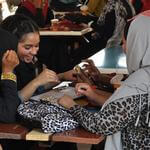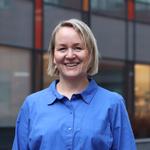Final conference – assisting regional universities in Sudan and South Sudan
<div class="event-icon"></div> <span>Save this event in my Outlook calendar</span>
<div class="event-icon"></div> <span>Save this event in my Google Calendar</span>
Liv Tønnessen
A unique combination of capacity building amongst staff at regional universities and high quality research on peace and development have been main characteristics of the ARUSS (Assisting Regional Universities in Sudan and South Sudan) programme. On October 1-2 in Khartoum, researchers will come together with policy makers and activists to present their findings.
Three themes have received special attention throughout the programme period: Borders and border communities, political and fiscal decentralization, and gender issues. Presentations and discussions on topics like violence against women, legal frameworks for decentralization and border trade will be high on the agenda.
The conference will also emphasize one of the key elements of ARUSS: A focus on applied research and relevance for policy. The researchers have strived to build productive working relations between themselves and development authorities in regional governments and NGOs. The ARUSS researchers are already seeing results of an approach that all along has aimed for providing research and knowledge that improves the basis for decision making. Through their research, the ARUSS members have generated activism on violence against women in Sudan, documented drivers of poverty in the borderland areas and suggested poverty reducing policies and practice.
The final conference wraps up four years of close cooperation between CMI, the University of Bergen, Ahfad University for Women, the University of Khartoum and the six regional universities Red Sea, Kassala, Gedaref, Blue Nile, Dilling and Nyala in Sudan. The return of civil war made it impossible to involve the regional universities in South Sudan that were supposed to participate.
Project



